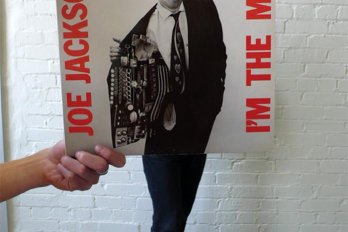jerusalem—The setting September sun chases the devout from the streets of the Muslim Quarter and into their kitchens. It is Ramadan, and the sunset call to prayer means today’s fast is over — time for the iftar meal. Deserted residential alleys echo with the sound of silverware clicking on plates and lids lifting from pots. Only feral cats prowl the old stones.
There are hints, though, that the night isn’t over. The shops along al-Wad Street are abandoned but unlocked, left in temporary haste. Several vendors have blocked their doorways by laying a broomstick over a pair of chairs. Others have simply pulled a sheet over their merchandise and switched off the lights. Some merchants haven’t left at all, huddling beneath anemic storeroom lights to feast on bread, dates, and bottles of carob punch.
When their bellies are filled and their prayers murmured, Palestinians stream out of their homes and reclaim the Quarter. Children celebrate a holiday reprieve from their usual bedtimes by kicking soccer balls and chasing one another through the streets. Their mothers hunt for bargains on shoes and clothes. Grill men serve charred lamb kebabs and potatoes flecked with sumac to those who have not yet eaten enough. On the steps outside the Damascus Gate, teenage boys sip tea and smoke water pipes.
It all seems like ancient and habitual joy, but Ramadan is different this year. No one can remember when the streets were this busy after iftar. There have never been so many coloured lights strung over al-Wad or, especially, along Tariq Bab al-Hitta, the street that descends through the so-called Gypsy neighbourhood to the holy environs of the Haram al-Sharif. The Palestinians are celebrating with unprecedented energy.
It is joy born of resignation. On the first Friday of Ramadan, across the “separation barrier” in the West Bank, Israeli soldiers barred pilgrims from entering Jerusalem for prayers. Only women and old men have been allowed through, and these only at the border guards’ whim. And while the cauldron of the Second Intifada is at a low simmer, Palestinians find themselves fractured into a Fatah-run West Bank and a Gaza Strip commandeered by Hamas through gunfire. Voices speaking of a Palestinian state are tinged with sarcasm rather than hope.
“We don’t care about authority,” says Ali Qleibo under the lights of Bab al-Hitta. “We just live our lives.” Qleibo is a Palestinian scholar, poet, and artist, with trim black hair and round eyeglasses. He pauses to pluck scraps of discarded bread from the cobblestones. “Bread should never be trod upon,” he says. He goes on to explain that Palestinians have given up on politics and turned their attention to “inner tranquility,” one expression of which is the dawn-to-dusk fast — an emulation of God’s self-reliance. This Ramadan, Palestinians find comfort where they can: in family, faith, and ritual.
Back outside the Damascus Gate, just above a vendor who squeezes scarlet juice from pomegranates into plastic cups, a battalion of Israeli soldiers stands watch. They wear flak jackets and hold guns against their chests. The happy boys in the square ignite holiday firecrackers, seemingly oblivious.


